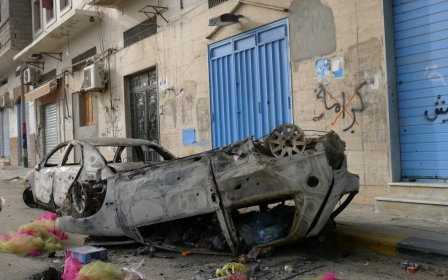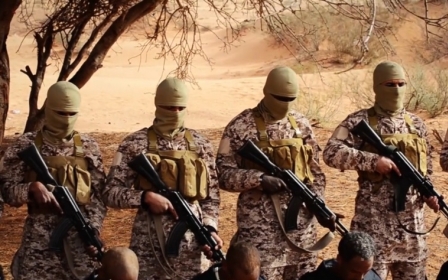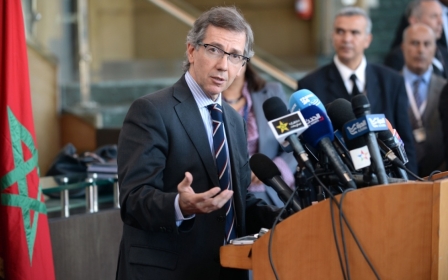Libya's Tripoli parties reject 'shocking' UN peace draft

A draft proposal put forth by UN envoy Bernardino Leon to end Libya's political crisis has invited criticism from political parties in the capital Tripoli.
The Tripoli-based parliament said that it rejects the proposal by the UN envoy.
The General National Congress (GNC) "completely rejects the draft proposal as it does not provide an objective, comprehensive, balanced solution," parliament spokesman Omar Humaidan said at a press conference on Tuesday.
Unveiled by Leon on Monday, the draft calls for a two-year transitional period and for all parties to respect the results of a parliamentary election.
Its fourth governing principle states that the House of Representatives (HoR), the internationally-recognised parliament that is locked in a struggle for legitimacy with the GNC, is “the only legislative authority in the country”.
The HoR was ruled unconstitutional by Libya’s High Court last November, after a tense session in the GNC-controlled capital Tripoli.
The draft does not mention the GNC.
The proposal also calls for extending the mandate of the country's constitution-drafting assembly.
In his cover letter, Leon acknowledged that the draft would not “meet all the expectations of all the parties”.
Humaidan on Tuesday called on the UN mission to "stand at equal distance from all parties and reconsider the mechanism of its operations to support the political course in Libya."
The Justice and Building Party, the Muslim Brotherhood’s franchise in Libya, was also critical of the proposal.
"The draft is shocking and disappointing," the party said in a statement.
"It ignores all the initiatives and opinions put forward during the [UN-sponsored] dialogue," it said, going on to call on the UN envoy to withdraw "the flawed and unbalanced draft".
According to the draft proposal, militias active in Libya’s cities would be replaced by a national army and police force.
However, with the army composed partly of state-funded militia groups, there would be fierce debate as to which groups and battalions could be considered part of the official army.
The HoR has yet to issue a statement as to whether it accepts the proposal.
If the draft proposal had achieved the agreement of both parliaments, Leon had planned to convene a “new and final” round of consultations aimed at finding a political solution to the deadlock and violence that has plagued Libya for years.
New MEE newsletter: Jerusalem Dispatch
Sign up to get the latest insights and analysis on Israel-Palestine, alongside Turkey Unpacked and other MEE newsletters
Middle East Eye delivers independent and unrivalled coverage and analysis of the Middle East, North Africa and beyond. To learn more about republishing this content and the associated fees, please fill out this form. More about MEE can be found here.




